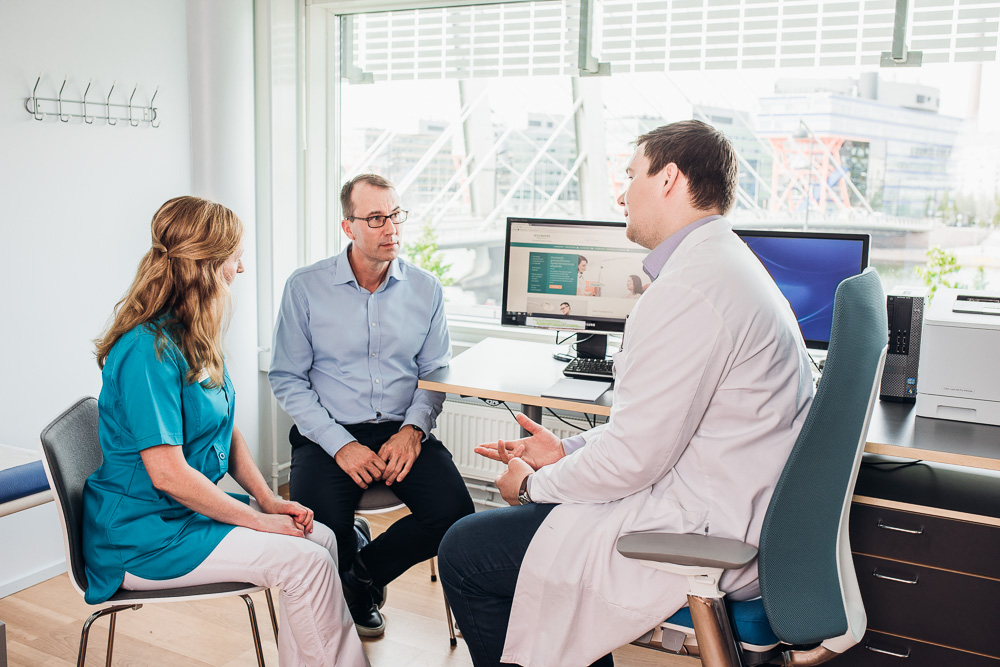Unlike other skin cancers, melanoma metastasises easily. Furthermore, melanoma is different from other skin cancers in that it is also found in relatively young patients. Similar to other skin cancers, melanoma has become more common, and the number of diagnosed cases has more than doubled in the 2000s.
Risk of disease
Solar UV radiation causes 60–90% of skin cancers. Sunburn and continuous exposure to sun (in outdoor work, etc.) cause skin cancer. Repeated sunburns (particularly in childhood and adolescence) are also the most important cause of melanoma.
Symptoms
Often the first sign of melanoma is a pigment change or new mole on healthy skin. Changes in moles should be monitored with particular care if there is a family history of melanoma. A large (diameter over 10 mm) coloured mole on the skin may indicate melanoma. Other alarm signs include changes in colour, having many colours, increase in size, irregular borders, itching and a red ring around the mole. Blue, red and black colour in particular may indicate melanoma. Bleeding and ulceration may occur. The surface of a melanoma tumor can be rough and uneven, but melanoma may also grow smoothly along the surface of the skin. In men, melanoma is typically found in the upper back, while in women it is typically located in the lower limbs.
Diagnosis
Distinct skin cancer tumors can be identified visually without any specific instruments. The doctor may further define the diagnosis by dermatoscopy. Often the patient notices the tumor and goes to see a doctor. The diagnosis is verified by biopsy.
Treatment
Melanoma is treated with surgery. The objective is thorough removal of the tumor, so that the disease will not come back. Patients with a high recurrence risk are often also treated with chemotherapy or radiotherapy.
The most severe form of the disease, metastasised melanoma, cannot be cured, but its progress can be slowed down with various pharmacological combination therapies.










